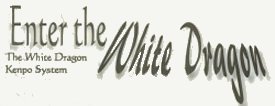|
|
 Some people might deem that seeking to improve on the work of Ed Parker
would be impossible, even arrogant. But Parker, who dedicated his
life to perfecting the martial arts, would never have wanted that process
to end with his death. So it is that one of his students, Al Farnsworth,
continues to refine the techniques he learned under the great master.
Al Farnsworth has studied martial arts for 26 years. Over this time
he never limited himself to one style, only one way to do things.
In his quest for knowledge, be realizes that all martial arts have something
of value to offer a martial artist,. Nicknames "white dragon" when
he was the only caucasian in his gung fu class, Farnsworth has studied
sil lum pi gung fu (hungar/choy ly fut), earning a black sash; tae
kwon do, earning a fourth degree black belt; was a Golden Gloves
boxer; a brown belt in tae budo jiu jitsu; and was already a second degree
black belt in Kenpo Karate before meeting Ed Parker. Studying directly
under Master Parker for years, Farnsworth learned the whole of Master Parker's
Kenpo system, including Long Form 7 and Long Form 8. Master Parker
promoted him to third degree black belt. Farnswoth still wanted to
expand on his martial arts knowledge, and began studying hapkido and arnis,
while continuing his studies in Kenpo Karate under Larry Tatum, who promoted
him to fourth degree black belt, and Dave Hebler who promoted him to fifth
degree black belt. He is furthering his studies in gung fu under
Master Buck Sam Knong.
Some people might deem that seeking to improve on the work of Ed Parker
would be impossible, even arrogant. But Parker, who dedicated his
life to perfecting the martial arts, would never have wanted that process
to end with his death. So it is that one of his students, Al Farnsworth,
continues to refine the techniques he learned under the great master.
Al Farnsworth has studied martial arts for 26 years. Over this time
he never limited himself to one style, only one way to do things.
In his quest for knowledge, be realizes that all martial arts have something
of value to offer a martial artist,. Nicknames "white dragon" when
he was the only caucasian in his gung fu class, Farnsworth has studied
sil lum pi gung fu (hungar/choy ly fut), earning a black sash; tae
kwon do, earning a fourth degree black belt; was a Golden Gloves
boxer; a brown belt in tae budo jiu jitsu; and was already a second degree
black belt in Kenpo Karate before meeting Ed Parker. Studying directly
under Master Parker for years, Farnsworth learned the whole of Master Parker's
Kenpo system, including Long Form 7 and Long Form 8. Master Parker
promoted him to third degree black belt. Farnswoth still wanted to
expand on his martial arts knowledge, and began studying hapkido and arnis,
while continuing his studies in Kenpo Karate under Larry Tatum, who promoted
him to fourth degree black belt, and Dave Hebler who promoted him to fifth
degree black belt. He is furthering his studies in gung fu under
Master Buck Sam Knong.
Sharing
Knowledge
Now an instructor, Al Farnsworth conveys knowledge in a manner students
can easily comprehend, fully explaining the how, why, principles, and ideas
of each technique to the smallest detail. In fact, it was in service
to his students that Farnsworth created the White Dragon Kenpo System.
He has never believed in holding back knowledge and gives freely to those
who wish to learn. Giving credit where credit is due, Farnsworth
notes that "If I had to choose one man over any other who didi more
for karate in America, it would be Ed Parker. he didn't create martial
arts, their principles, or ideas, but he organized the knowledge in a way
American could understand and apply. His accomplishments in the martial
arts were great and he's fully deserving of the title "Grand Master."
Nonetheless, Al Farnsworth also learned Parker's primary lesson:
revise, refine. "The techniques Master Parker created are all well
thought out and effective, it is a very good system to learn. There
were, however, a few weak points," says Farnsworth. "First,
there were not nearly enough kicks, especially at lower levels. Second,
the Knowledge of motion was given out at a slow pace; the introduction
of new moves and new ideas were few and far between. It seemed that
everything was saved for the higher belt ranks, and until you reached brown
belt you'd have to be satisfied with rearranging motion you already knew;
this isn't altogether bad, it's good to know how to rearrange motion.
Still, I think five felt levels of it is a bit much before you get really
learn how to move. Third, students didn't learn how to use any weapons
until a staff set in second brown."
Set Apart
Just what sets Farnsworth's system apart? White Dragon Kenpo
has all the tremendous hand speed and dynamic power of Kenpo Karate, but
kicks from tae kwon do were added making it a more balanced system.
This teaches the student to not rely only on his hands, but to use all
of his natural weapons. White Dragon Kenpo introduces weapons training
at orange belt; each belt level after you learn to effectively use
a different weapon: orange belts learn the nunchaku; purple
belts learn the escrima sticks; blue belts learn the staff, and so
on. White Dragon Kenpo also integrates motion from other styles,
giving a student a larger variety of natural weapons to employ. This
augments the basic fist and hand sword of Kenpo.
-David Farnsworth (12/97) |
![]()